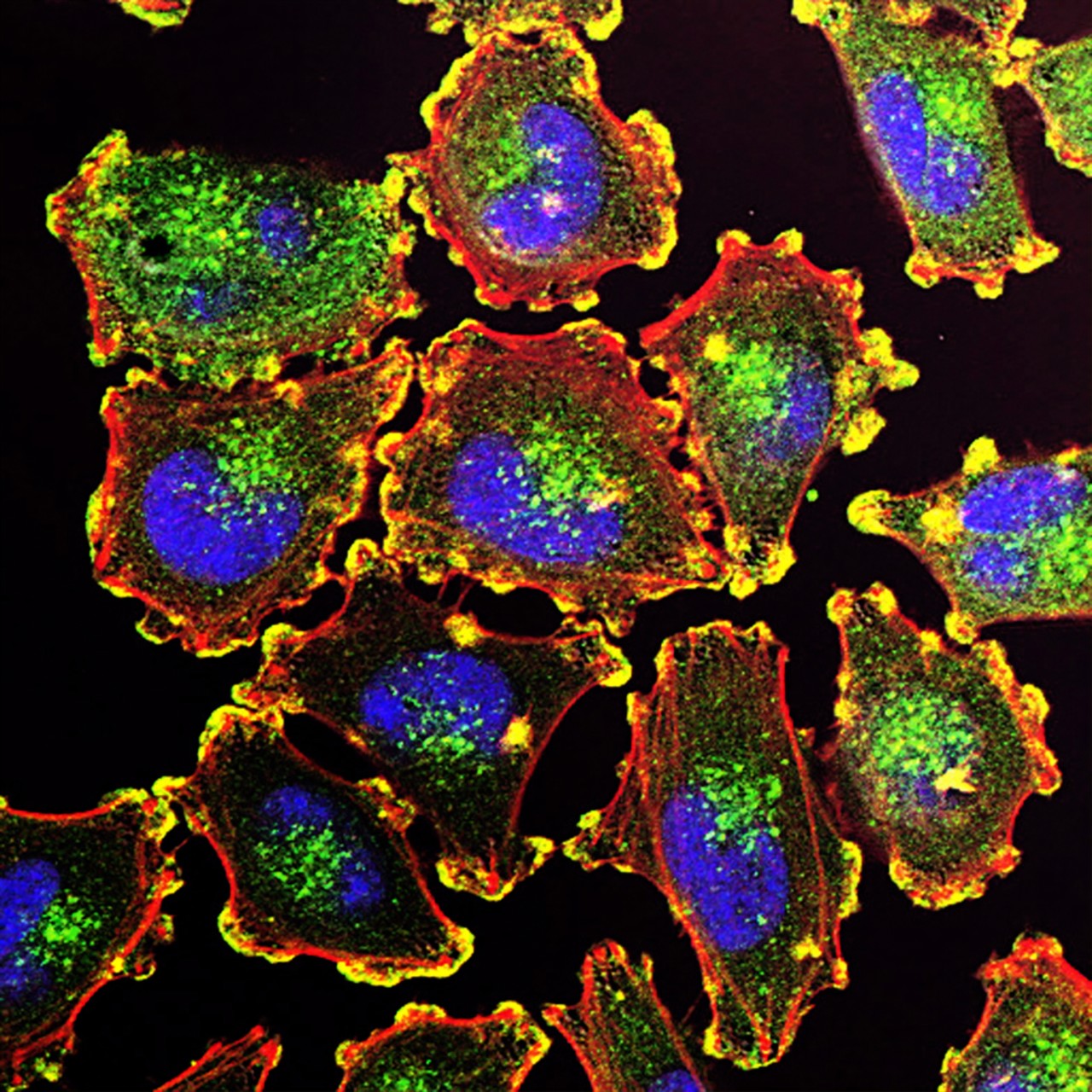
Medscape: Skin adverse events rare after immunotherapy to treat skin cancers
Medscape highlighted University of Cincinnati research published in JAMA Dermatology that found certain skin adverse events were rare following immunotherapy treatments for certain skin cancers.
"Programmed cell death 1 (PD-1) and programmed cell death ligand 1 (PD-L1) inhibitors are commonly used drugs for the treatment of various cancers," said Pushkar Aggarwal, MD, corresponding author and medical resident/fellow in UC's College of Medicine. "Having knowledge regarding possible associated skin reactions is vital for clinicians to guide management of the skin reaction and whether an adjustment is needed for the PD-1/PD-L1 inhibitors."
The researchers reviewed adverse event reports for patients treated with PD-1 and PD-L1 treatments between January 2004 and May 2023 to identify whether significant signals exist between PD-1/PD-L1 inhibitors and skin tumors keratoacanthoma and cutaneous squamous cell carcinoma (cSCC).
"For both keratoacanthoma and cSCC, significant signals were found with PD-1/PD-L1 inhibitors," Aggarwal said. But, out of 158,000 cases in the review, the data showed only 43 patients developing keratocanthoma and 83 developing cSCC, which highlights the conditions are "relatively rare adverse events."
Aggarwal said case reports, case-control trials and randomized clinical trials are needed to confirm the results of this study.
Featured photo at top of metastatic melanoma cells. Photo/National Cancer Institute.
Related Stories
President picks exceptional talent
April 28, 2021
The University of Cincinnati 2021 Presidential Leadership Medal of Excellence Awards honor six undergraduate scholars for scholarship, leadership, character, service and the ideals of the university. Awardees are spotlighted for exceptional academics, creativity, community service and innovation.
Grad students earn president's highest honor
April 28, 2021
The University of Cincinnati 2021 Presidential Medal of Graduate Student Excellence Awards honor three graduate scholars for scholarship, leadership, character, service and the ideals of the university. Awardees are spotlighted for exceptional academics, creativity, community service and innovation.
Finding community and building a future
July 9, 2021
As a University of Cincinnati College of Medicine student, Sarah Appeadu, MD, ’21, remembers journaling on the “3 Cs” that got her through medical school: Community, community, community. Now, when she lists the people who supported her through four years of training—the last year in a global pandemic—it keeps growing: her family, her church, her classmates, and the college’s Office of Student Affairs and Office of Diversity, Equity and Inclusion. “I look back and it was such a crucial time to really be nurtured in that way,” she says. “I’m so thankful that I had those people. It shows being around the right people really mattered. That’s my same hope for residency even.”
UC to honor 2,079 grads at summer Commencement
August 2, 2021
UC celebrates the 2021 summer Commencement on Friday in two ceremonies at Fifth Third Arena. On Saturday, UC will recognize 2020 grads with an in-person Commencement celebration.
New York Times: Flint Weighs Scope of Harm to Children Caused by Lead in Water
February 1, 2016
Kim Dietrich, a professor of environmental health at UC's College of Medicine, is quoted in this story on the medical problems that could develop among the thousands of young children exposed to lead-contaminated water in Flint, Mich.
Cancer-Causing Gene Found in Plasma May Help Predict Outcomes for Patients
February 18, 2016
Researchers at the University of Cincinnati have discovered that a human cancer-causing gene, called DEK, can be detected in the plasma of head and neck cancer patients.
UC Receives $1.9 Million to Study Pain
February 15, 2016
Jun-Ming Zhang, MD, of the UC College of Medicine, is the principal investigator of a $1.95 million grant to study the interacting roles of the sympathetic and sensory nervous and immune systems in back and neuropathic pain models.
MD Magazine: Generic Drug Equally Effective in Epilespy
February 22, 2016
Michael Privitera, MD, a professor of neurology at UC's College of Medicine and director of the Epilepsy Center at the UC Neuroscience Institute, is featured in this story about research he led that examined the efficacy of generic drug substitution for epilepsy.
UC to Host Regional Conference for Latino Medical Student Association
February 10, 2016
The University of Cincinnati chapter of the Latino Medical Student Association (LMSA) will host a Midwest regional conference Feb. 26-28, 2016, at the College of Medicine.
Heart Disease Still Top Killer of American Women and Men, Symptoms Differ
February 1, 2016
Women tend to get palpitations, shortness of breath and "sharp" chest pain when suffering heart attacks, explains Stephanie Dunlap, DO, in the UC College of Medicine.
